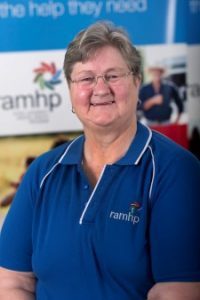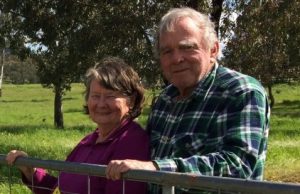In this episode we focus on what happens to our mental health when we experience emergencies and disasters. Disasters can strike at any time. From car accidents to natural disasters we can find our mental health pushed and tested in many ways. In this episode we share tips about keeping yourself and those around you mentally well during tough times.

Di Gill worked with the Rural Adversity Mental Health Program for over 10 years. Based in Canowindra, Western NSW Di is well integrated with the community and understands the hardships that extreme weather can cause.

Phil and Chris Munge have been married 48 years. Chris, brought up in Sydney, studied nursing, and married the “Pommy jackaroo”.
Phil and Chris bought a little bit of paradise in Bugaldie. This was the first home of their own. They have been through the heartache of losing the only thing they owned in 2013 but say “As long as our amazing kids are on hand, and each other that is all that matters”.
 Clinical Psychologist, Dr Rob Gordon, has spent the past 30 years working with people affected by emergencies and disasters. Dr Gordon was there in the aftermath of the Bali bombings and Christchurch earthquake, Black Saturday, the Canberra firestorm and the Tasmanian bushfires, as well as many other large-scale disasters
Clinical Psychologist, Dr Rob Gordon, has spent the past 30 years working with people affected by emergencies and disasters. Dr Gordon was there in the aftermath of the Bali bombings and Christchurch earthquake, Black Saturday, the Canberra firestorm and the Tasmanian bushfires, as well as many other large-scale disasters
Talking to someone who has experienced an emergency or disaster
It can be hard to know what to say when people have experienced an emergency. Here are some tips from clinical psychologist, Dr. Rob Gordon:
- Listen to where the person’s focus is. Often the focus is on the problems outsides themselves. Try to remember things that they have said, and ask them about that; such as, “Did you get that fence up, you were telling me about?”
- Show them that you are thinking about them. Ask, “Are you having any problems with…”
- Start with the practical issues, following with “So what are you doing about it? That must be hard, have you been able to achieve things?”
- Ask questions about their physical health, such as “Are you able to get rest?”
- Often people will carry minor physical ailments, without taking any notice of them. Not sleeping well, not eating well, eating the wrong things, or smoking more. It is important to bring this to the persons attention saying “look, I know you have a lot going on, but I think it’s important if you come home a bit earlier, prepare a nice meal, and take the evening off, I bet you’ll do more tomorrow.”
- In stress mode people become more and more busy and less and less effective. It is important to break this stress cycle, reflecting back to the person about their state can help.
Check out this video where expert psychologist Dr. Rob Gordon shares his knowledge on what people experience when they face a natural disaster.
Help Services
If you or someone else is in immediate danger, call 000 or go to your nearest hospital emergency department.
If you’re concerned about your own or someone else’s mental health, you can call the NSW Mental Health Line on 1800 011 511 for advice.
Having a tough time and need someone to talk to right now? The following services are there to listen and help you. They are confidential and available 24/7.
- Lifeline – 13 11 14
- Men’s Line Australia– 1300 78 99 78
- Kids Help Line – counselling and support provided for young people (to 24 years old) who are feeling depressed, sad, or lonely – or just need someone to talk to – 1800 55 1800
- Domestic Violence Line – 1800 656 463
- Suicide Call Back Service– 1300 659 467
